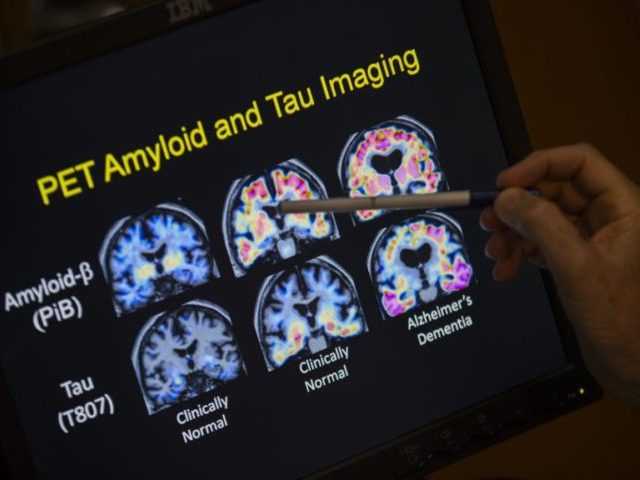
Stanford University President Marc Tessier-Lavigne announced Wednesday that he will resign after an independent review of his Alzheimer’s disease research discovered considerable flaws, going back years. A report stated that his work had “numerous problems” and “fell listed below popular requirements of clinical rigor.”
The evaluation discovered that an important 2009 Alzheimer’s research study had multiple problems” and “fell below popular standards of scientific rigor and process,” particularly for a paper of such possible consequences, according to a report by the New York Times.
New way of specifying Alzheimer’s objectives to discover illness faster( The Associated Press) A woman with Alzheimer’s disease beings in a retirement home on October 18, 2016 in
Saint Quirin, eastern France. For the second year, kids with psychological troubles satisfy each Tuesday the locals struggling with Alzheimer’s illness at the retirement home of the village of Saint-Quirin./ AFP/ PATRICK HERTZOG/ RESTRICTED TO EDITORIAL USAGE– TO SHOW THE OCCASION AS SPECIFIED IN THE CAPTION (Photo credit ought to read PATRICK HERTZOG/AFP/Getty Images )The panel of scientists who conducted the evaluation, nevertheless, refuted the most serious accusation made against Tessier-Lavigne’s work, which was that the Alzheimer’s research study was the topic of an investigation that found falsified information, which Tessier-Lavigne had covered it up. As an outcome of the evaluation, Tessier-Lavigne stated he will pull back a 1999 paper that appeared in the peer-reviewed journal Cell, as well as two other documents that appeared in Science in 2001. Additionally, two other documents released in Nature, including the 2009 Alzheimer’s study, will apparently go through a” extensive correction. “In their evaluation, the panel of scientists also found numerous circumstances of images in documents that had been duplicated or entwined , but concluded that Tessier-Lavigne had not taken part in the control and was not knowledgeable about them at the time. As Bretbart News has actually formerly reported, scams in Alzheimer’s research has actually been a considerable problem. While this research study had actually been released prior to Tessier-Lavigne came to Stanford in 2016, the results of the evaluation however harms the reputation of the university, which is understood for being a leader in scientific research study.”I anticipate there might be continuous discussion about the report and its conclusions, at least in the near term, which might result in discuss about my ability to lead the university into the new scholastic year,”Tessier-Lavigne stated in a statement. Tessier-Lavigne is set to officially resign from president of the university in August. He will, however, stay at Stanford as a biology teacher. On the other hand, Stanford has picked Richard Saller, a teacher of European studies, to be the university’s interim president, starting September 1. You can follow Alana Mastrangelo on Facebook and Twitter at @ARmastrangelo, and on Instagram.


